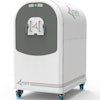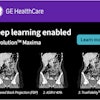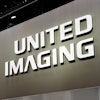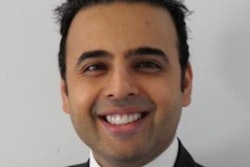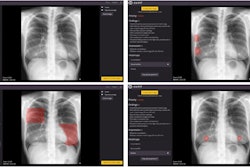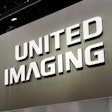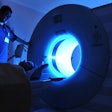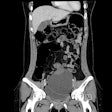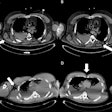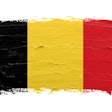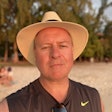VIENNA – Success in life may well come from seizing opportunities and embracing unplanned chances, and regret often stems from missed chances rather than failed attempts, top researcher and CT pioneer Prof. Mathias Prokop, PhD, told ECR 2024 delegates in a highly personal talk about his own career and scientific journey.
"Your life will have lots of chances -- you can take them, or you can leave them. What you regret is what you leave, not what you take [and fail at]," he explained in a session called "My journey in radiology research and lessons I learned for next-generation radiology."
Young radiologists should dare to leave their comfort zone in the pursuit of expanding their horizon, said Prokop, who is chair of radiology at Radboud University Medical Center in Nijmegen, the Netherlands. Transitioning between academic institutions taught him valuable lessons in teamwork and delegation, according to Prokop. He emphasized the importance of recognizing personal limitations and leveraging the strengths of others, underscoring the significance of effective collaboration in achieving collective success.
 Prof. Mathias Prokop was elected second VP of the European Society of Radiology in early 2024. He will preside over ECR 2027.
Prof. Mathias Prokop was elected second VP of the European Society of Radiology in early 2024. He will preside over ECR 2027.
Also, he said he encourages his residents to set clear life goals and cultivate symbiotic networks that complement their strengths and weaknesses. Keep aware of the interconnectedness of one's personal life and professional aspirations, and remember the impact a partnership, friendships, and relationship to one's boss can have on career trajectories, he continued, adding that he wished he had made more "research buddies" when he had had the chance.
After completing high school, Prokop said he found himself uncertain about which academic path to pursue. Given his affinity for mathematics, he naturally gravitated toward math and physics courses during his early university years. Because math came easy to him, he did not think it necessary to study much for exams. This, however, did not work in his favor. He quickly learned the importance of consistent studying, regardless of perceived ease. "Even if something is really easy for you, studying always helps and you get better," he said.
When later faced with the pivotal decision between pursuing physics or medicine, Prokop asked himself in which field he would make the most significant impact. Realizing even back then how important leaving his mark on the world was for him, he chose medicine.
During his rotations he didn't particularly enjoy surgery, but he decided to make this time more bearable by choosing a location he found enjoyable: Vienna. Prokop emphasized the significance of selecting institutions with ample expertise in the area one wishes to work in to ensure the best possible learning process.
 A spell in Vienna was significant for Prokop.
A spell in Vienna was significant for Prokop.
Lessons gleaned from his scientific journey underscored the importance of collaboration and the importance of accessibility to research findings. He advises young researchers to share ideas with others as this can lead to fruitful collaborations but also to be careful and to consider the outcomes they seek.
"You really have to think about what do you want to get [in return] ... It can be a patent, ultimately money or research money, acceptance of your peers, good publications or talks at congresses." Collaborations should align with personal and professional goals, thus Prokop cautioned against focusing too much time on congress presentations, as he once did.
Urging researchers to document valuable findings he stressed that published and easily accessible knowledge can support other researchers and elevate the field. Furthermore, he advised to always mark publications on one's CV. "Impact you get not by keeping the ideas to yourself. Because they don't spread. You are the limiting factor for the idea. The idea gets better if others play with it [and] add to the idea."
With the benefit of hindsight, Prokop admits his M.D. thesis was too wide-ranging, substantial, and deep and it lasted too many years. On the other hand, he took a different approach with his PhD studies. In his pursuit of finishing his doctorate as quickly as possible, Prokop opted to work with preexisting cases rather than directly with patients for his data collection, enabling him to complete this process in three months and hand in his work within nine months.
Also, he wrote a book in which he referred to new scientific insights that had not been published previously, so the lesson he had learnt was that "next time, publish it first and write the book afterwards." Prokop noted that no publications came out of all the hard work, but he had a great impact on radiology with the book.
Prokop said he later realized the trade-off, acknowledging that more time invested in research design could have yielded deeper insights and greater benefits. "Taking a step back and thinking about what you're doing is really important," he concluded.

